I’m back home from Georgetown and I’m getting things lined up for the release of FOR OUR DAUGHTERS this Thursday. (It will release online and on YouTube—but ForOurDaughtersFilm.com has links to everything you need—discussion questions, bios, resources on sexual and spiritual abuse.
Next week, we’ll be holding an in-person screening in Holland, MI. Carl Byker, the director, will fly in for this. Cait West, Len VanderZee, and I will all be there, and possibly also one or two other participants. Information and tickets here. (If you want to come, I’d recommend getting your tickets sooner rather than later, as it’s expected to sell out.)
It was wonderful to see many friends and CONNECTIONS readers at the wonderful reception this past Thursday on the rooftop overlooking the national mall. I wish I’d thought to take pictures! And it was such a good experience meeting so many other scholars and activists, groups working to coordinate election response efforts, and so many folks I’ve been collaborating with over Zoom for the past months and in some cases, years.
While there, I recorded two podcasts on the proceedings. The first with Jim Wallis and the Convoctation: Unscripted team, and the second just with the four of us—but our first ever video podcast where we’re all in the same place. We’ll be releasing those this week.
One of the attendees at the Test of Faith Summit that I was thrilled to meet for the first time was Holly Berkley Fletcher. I can’t remember when our (virtual) paths first crossed, but we’ve been connected for some time now—long enough for Holly to conceptualize and then write a book of her own, The Missionary Kids: Unmasking the Myths of White Evangelicalism, which will release next August. (I’ll give you a heads-up when it’s available for pre-order.)
Holly also writes here on Substack, and you should give her a follow. She wrote this week about her experience at the Test of Faith Summit, and she’s generously given me permission to include her observations here. I love how she’s captured the spirit of the event:
I started the blog that eventually migrated to this Substack after January 6, 2021.
Trump’s election in 2016 gave me the courage to leave my last evangelical church. I spoke out against the threat he posed frequently on Facebook. I argued with people. Almost all of the Trump supporters I know are white evangelicals. But I mostly kept my thoughts about white evangelicalism itself to myself. I know and love many people in that faith tradition. Some of them are Trump supporters, but many aren’t. They’re good people, with strong, generally healthy faith.
But January 6 was the last straw. I felt I had to tell the whole truth as I see it. I had to point out the clear linkages I see between Trumpism/white Christian nationalism and “good” evangelicalism. Because I just couldn’t unsee it. And I couldn’t be quiet anymore. So I started this blog, which, among many other things, talks about that.
Then I wrote a book, the underlying theme of which concerns the connection in the evangelical mind and in evangelical history between supporting missions and an arrogant, dangerous religious subculture that has catastrophically failed a long litany of moral tests. And by some miracle and a series of very lucky strokes, that book will be published next year.
This was never the ambition of my life. I hoped to be a writer of some kind. But I never in a million years thought this was the story I would write.
And all along the way, I’ve wrestled with myself. I’ve searched my heart. I’ve interrogated my motivations like a tough-as-nails prosecutor. I’ve asked myself why I am doing this? Especially since I risk offending or even hurting people I love. That’s never been my intention. I am deeply grieved at the prospect. But it’s unfortunately a likely by product.
I’ve gone back and forth on whether I am the Good Guy—slinging truth like a bandit, like some kind of prophetess-badass-rebel-with-a-cause—or the Bad Guy, a bitter, judgmental crank.
The truth is, I’m probably a little of both. All of us are.
This was what was once again in my mind as I attended a summit this week called Test of Faith: A Summit to Defend Democracy. It brought together a diverse and influential group of Christian leaders, thinkers, historians, sociologists, activists, and national security experts, all of them seriously freaked out, to use a technical term, by the rise of white Christian nationalism, the widespread Christian support for an authoritarian movement, and the firm belief that “both democracy and the American church are in crisis,” in the words of the statement drafted by these leaders that I encourage all of you to read in full and sign if you are so moved.
It was a fantastic event overall, and for me personally, as I was able to meet multiple authors whose work has greatly influenced me (and from whom I hope to get endorsements—although, word to the wise, not a great idea to go trolling for blurbs from a bunch of people heavily engaged in democracy-related issues right before one of the most consequential elections in history. I hate to think they may sacrifice sleep to read my book. But mama gotta eat).
People like Kristin Du Mez, Jemar Tisby (he’s got a new book just out, The Spirit of Justice), Diana Butler Bass, Samuel Perry, Elizabeth Neumann, Robert P. Jones, and others. _I mean, for this Super Nerd, I was like the world’s biggest Swiftie on the front row at the Eras Tour.
The speakers did not shy away from the hard truths as they see them. But all of them spoke it with respect, compassion, and hope for reconciliation with those who disagree. They referenced the delicate balance between speaking out and welcoming in. They have wrestled with the same things with which I have wrestled.
Kristin Du Mez in her remarks talked about the total, self-assured certainty of Christian nationalists—and frankly white evangelicalism writ large—that God is on their side, and how that impulse can be potentially radicalizing. She talked about how the “supreme confidence in one’s own righteousness” is a temptation for us all and the importance of “acknowledging our own fallibility” as we confront this threat. In fact, the human tendency toward self-righteousness is why we have a democratic system to begin with. “Democracy is realistic,” she said.
Both democracy and Christian belief demands that we disagree and oppose in constructive, peaceful ways. That we fight fairly, within the bounds of truth and love.
This tension between clearly calling out what we see as pernicious and destructive while not demonizing those who enable and directly support those beliefs was a theme throughout the conference. Just a sampling of quotes:
“[The threat of political violence] is not something the security apparatus can solve. It’s up to us…We need to approach these folks with empathy. They have been deceived.” —Elizabeth Neumann
“Bad faith is overcome by good faith.”—Jim Wallis and Barbara Williams-Skinner
We are not gonna win by being righteous. This is gonna be won on our knees, in relationship, then in the trenches.”—Barbara Williams-Skinner
“We have to figure out ways to broaden the table….We have this treasure [democracy] we get to steward together.”—Adam Phillips
“Commonality does not mean conformity. …It’s what we share.”—Diana Butler Bass
“The call to oneness is a call to witness…We have to tell the truth about what we believe…We bear witness, and God changes hearts.”—Jemar Tisby
“The level of self-delusion is the problem.”—Robert P. Jones
“We’re in a crisis of national identity…We decide who we are. We have the power and obligation to change our country.”—Sherrilyn Ifill
I was chatting about this tension with Kristin Du Mez at the reception, agreeing with her that presuming God was on one’s side was a danger for all of us. I told her how much I loved to visit the Lincoln Memorial, which I am so lucky to be able to do whenever I want, as it’s only four miles from my house. Ideally, I go at night, when the crowds recede and the quiet bounces off the marble walls like a meditation. And etched on one of those walls is Lincoln’s Second Inaugural address.
Like the Gettysburg Address, which is on the opposite wall of the memorial, Lincoln’s Second Inaugural is exquisite in its efficiency and clarity. But the Second Inaugural isn’t just a poetic statement of America’s meaning, and it doesn’t just speak into its moment in American history, which might lend itself to the triumphalism of the North’s rapidly impending victory. Lincoln refused to go anywhere near that and instead offered one of the most profound theological statements I’ve ever read.
Lincoln reviews the causes, prosecution, and results of the nightmarish, bloody, costly war the nation has lived through. He explains how the North and South’s different economic and political interests, in which slavery was inextricably entangled, led them to conflict. Then he then reflects on their commonalities, and their common guilt:
Both read the same Bible, and pray to the same God; and each invokes his aid against the other. It may seem strange that any men should dare to ask a just God's assistance in wringing their bread from the sweat of other men's faces; but let us judge not, that we be not judged. The prayers of both could not be answered—that of neither has been answered fully.
The Almighty has his own purposes…if God wills that [the war] continue until all the wealth piled by the bondman's two hundred and fifty years of unrequited toil shall be sunk, and until every drop of blood drawn with the lash shall be paid by another drawn with the sword, as was said three thousand years ago, so still it must be said, "The judgments of the Lord are true and righteous altogether."
He concludes by arriving at the absolute heart of the matter:
With malice toward none; with charity for all; with firmness in the right, as God gives us to see the right, let us strive on to finish the work we are in; to bind up the nation's wounds; to care for him who shall have borne the battle, and for his widow, and his orphan—to do all which may achieve and cherish a just and lasting peace among ourselves, and with all nations.
Lincoln spent four agonizing, wrenching years, full of both national and personal tragedy, leading the nation through the darkest of nights, fighting for unity and against an indisputably great evil. Throughout, he was clear-eyed, resolute, and militarily brutal. He did not waver from the fight, not for a second.
But neither did he descend into arrogance and hate, which would have destroyed our country for all time. In a world of moral complexity that we all navigate with poor vision and mixed motives, Lincoln did not presume God was on his side, no matter how righteous his cause.
Instead, he prayed he was on God’s side.
He doggedly, ferociously did right as he saw it. But he imagined that his opponents were doing the same, however misguided he believed them to be. And he let God be the judge.
Ultimately, that IS democracy. Lincoln sadly found himself at war, not of his own choice, to preserve and reform our democratic system. But democracy at its best precludes violence. It tolerates difference, within the sacred boundaries of individual rights. It lays out the rules of the game and trusts the results.
Democracy cannot run on fear. Democracy runs on faith. Democracy runs on love.
And many and varied faith communities have run on democracy—successfully, for centuries. They have tangibly benefitted from democracy. They have thrived on democracy.
“I’ve always believed…democracy is a logical outgrowth of the Christian tradition,” EJ Dionne said. “And we should defend it.” Amen and amen.
As I do what I feel called to do in this moment, I pray I am on God’s side. I don’t know that I am, and I should never rest easily in that knowledge.
I find myself walking an unexpected road, but it does feel as if my feet were placed on it. So I will keep walking.
I believe we face a generational test, to see if we are worthy of this gift of democratic government, which is only as good as The People. I don’t believe in much these days, but, my God, I believe in democracy.
And I will not fail this test, as God is my witness. Don’t you fail it, either. Stand up and fight for it, with all your might but with humility in your heart. Bequeath a better version to your children and to my children.
I don’t know why exactly we’re here or where exactly all this is going, but I believe in my deepest soul that this moment, this fight has something to do with it.
I love how Holly sums things up, although I must add that my daughters will adamently deny that I’m anywhere near Taylor Swift levels of cool. But I especially love how she reflects on all of this with humility and resolve.
Remember to subscribe to Holly’s Substack here.




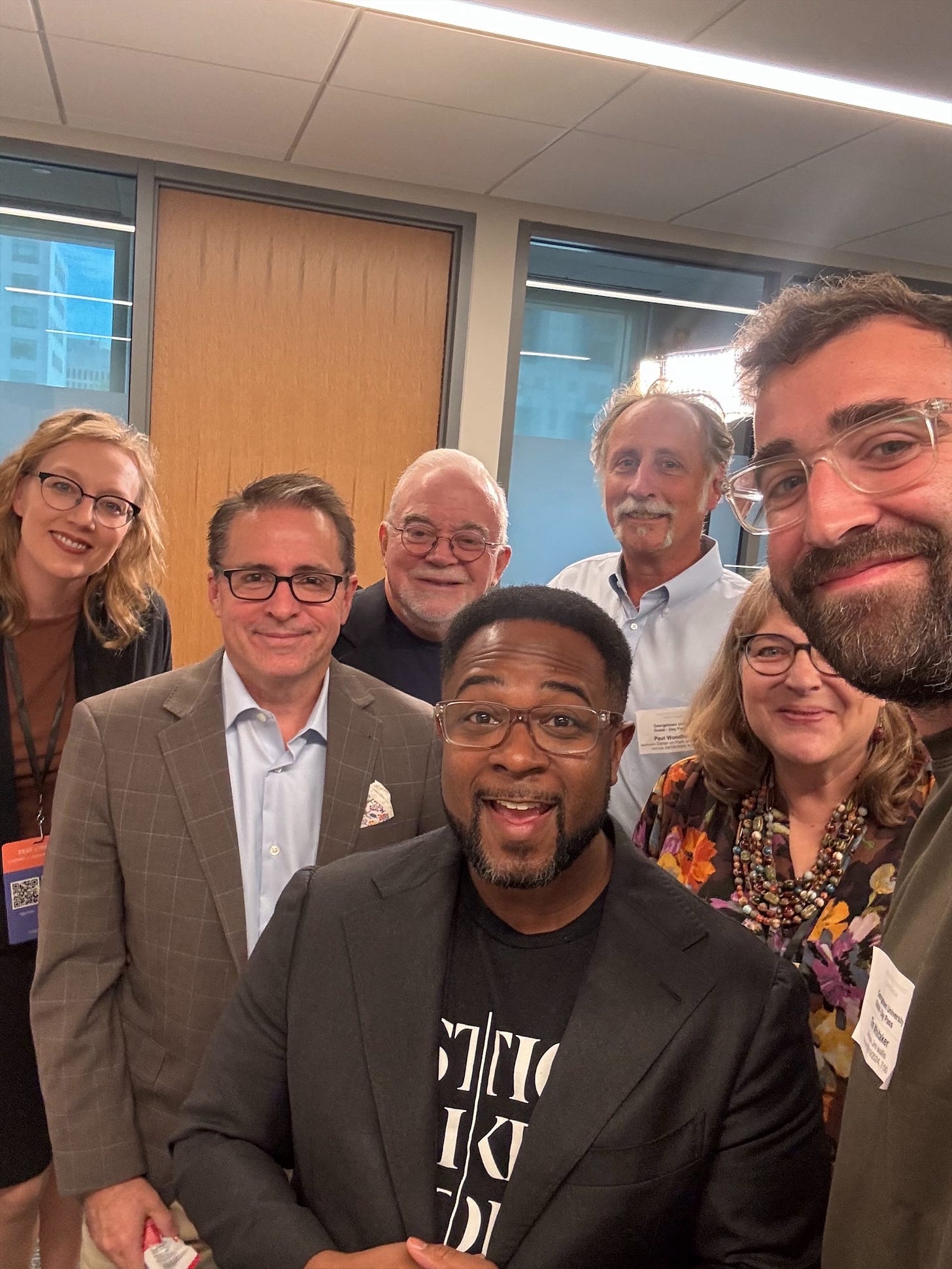
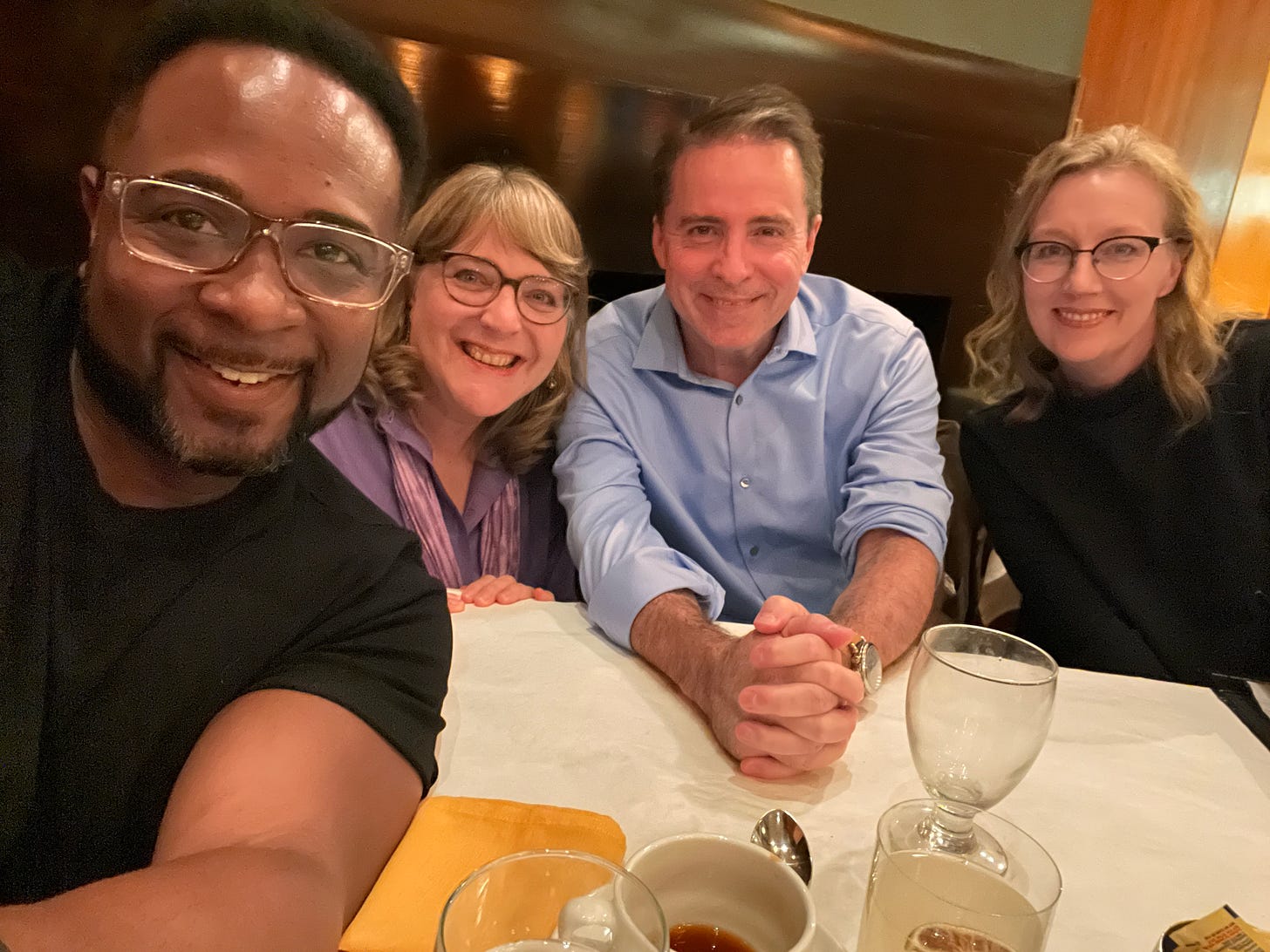
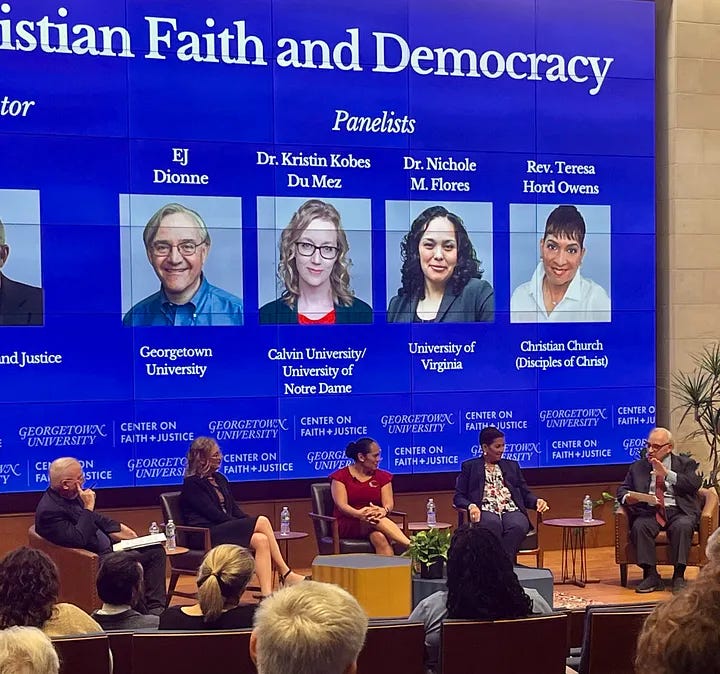
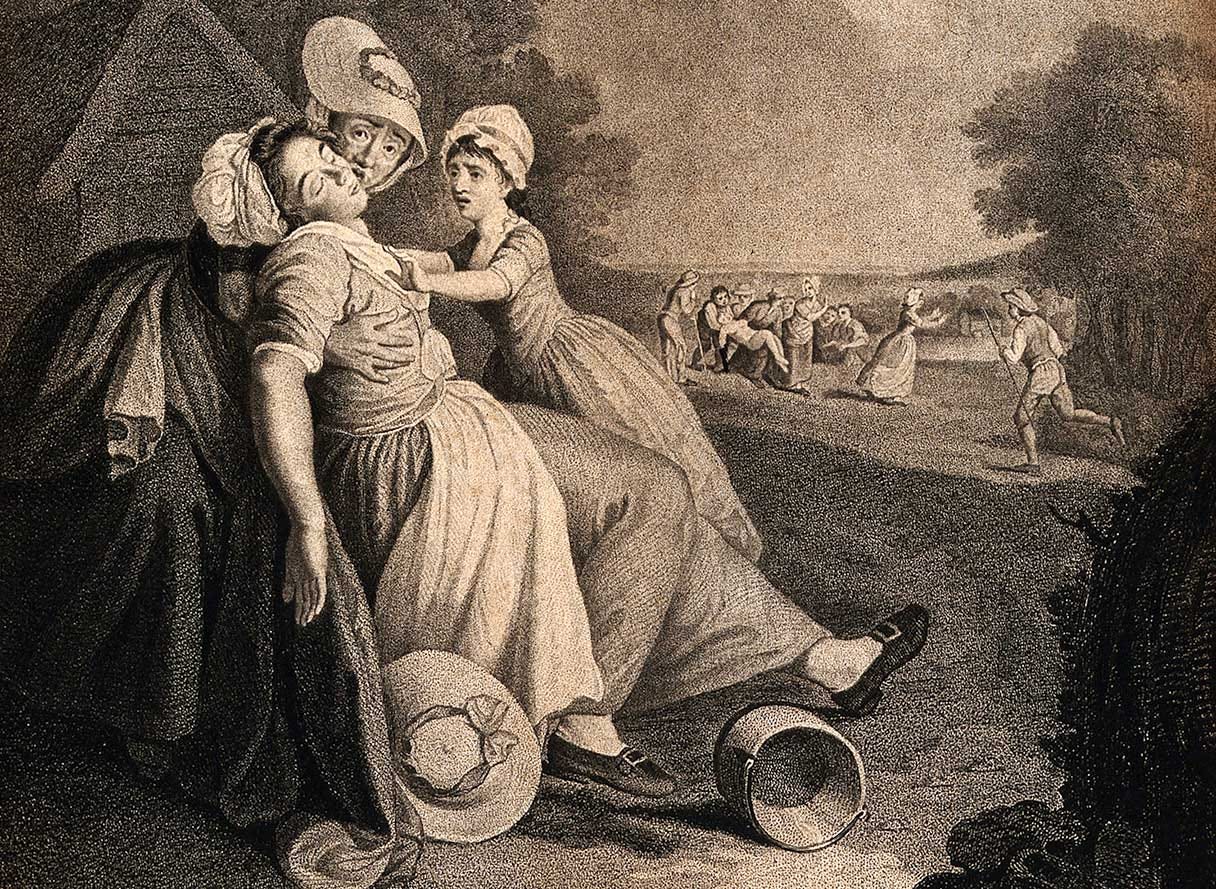
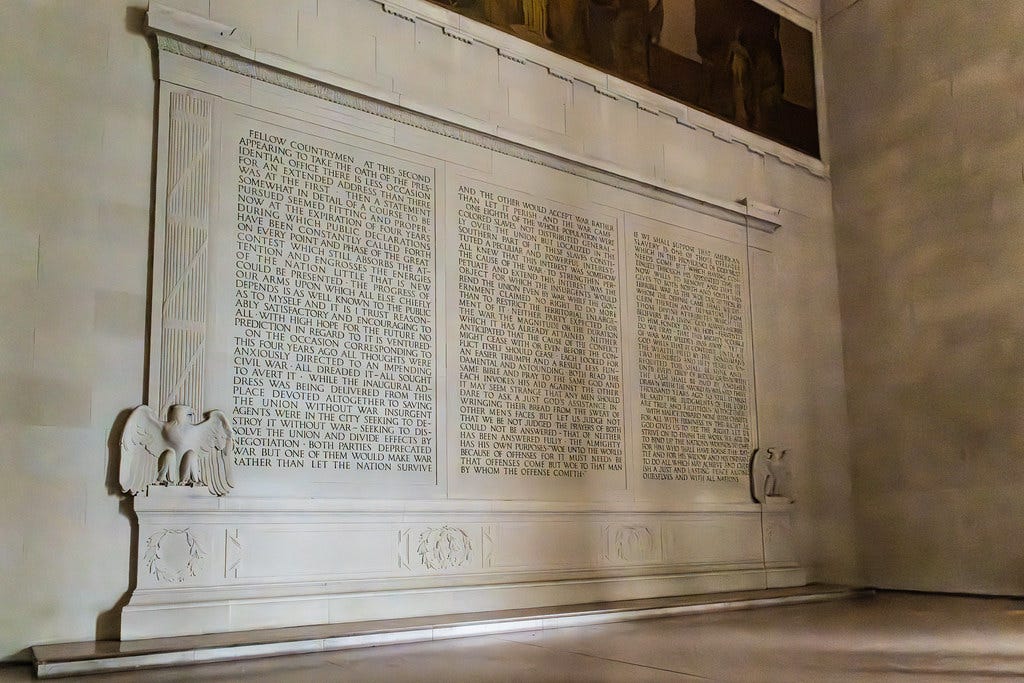
Such a thrill to finally meet you Kristin, you are as kind and lovely in person as you seem. And so many others (and, I, too, took no photos with anyone!) This event just filled me up to the brim. Ready to do more for democracy than ever before.
The obvious link between white Evangelical "Christianity" (which is actually just primitive tribalism passing itself off as a religion) and fascism is something we ignore at our peril. We have done so for far too long. Commercial media will, alas, consistently fail us in this regard out of either fear or ignorance.